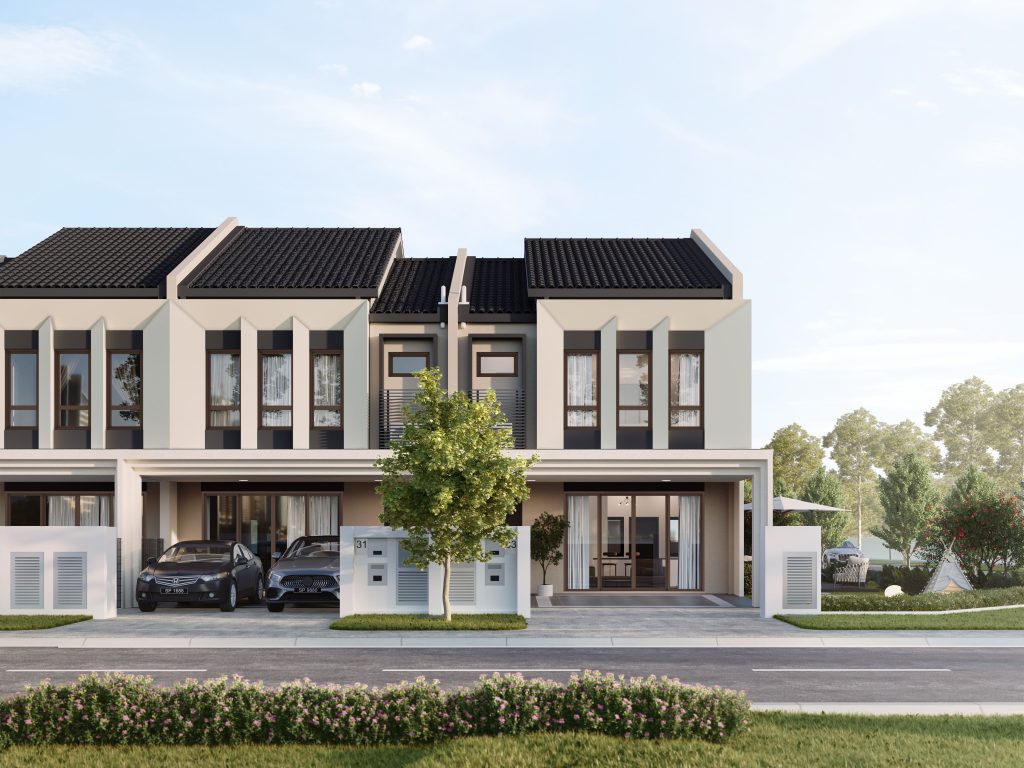By Joseph Wong
In a remarkable turn of events over the past two years, Malaysian property has surged in affordability for numerous active overseas buyers, driven by the dramatic appreciation of their currencies and the depreciation of the ringgit.
Leading the charge among the Asian cohort are Chinese buyers, who have shown unparalleled enthusiasm for Malaysian real estate. Astoundingly, the ringgit has held its ground admirably against the Chinese yuan, which has astonishingly depreciated by 1% against the ringgit during this period. This seismic shift underscores Malaysia’s irresistible allure and strategic advantage in the global property market.
However, the ringgit has lost value against the Hong Kong and Singapore dollars. The Hong Kong dollar has appreciated by 10%, and the Singapore dollar by 13%, against the ringgit over the past two years. For a RM2mil home, this currency appreciation provides buyers from these two countries with an effective discount worth at least RM200,000.
Additionally, Malaysia’s education system is becoming increasingly competitive on the global stage. This growing reputation for quality education is another significant factor attracting international buyers to the country.
Malaysia ranks as the second most popular destination for buyers from Singapore, sixth for those from Hong Kong and seventh for mainland Chinese buyers. Several factors drive this interest in Malaysian residential real estate, including the country’s strategic location, major new infrastructure projects, a favourable investment climate, attractive yields and the allure of its diverse property market.
Malaysians look overseas too
On the purchasing front, Malaysians rank as the third-largest acquirers of international properties, showcasing their significant influence in the global real estate market. Malaysian investors are the third most-active buyers of overseas property among the Asian locations according to Juwai-IQI, with their top destinations being Thailand, Australia and Vietnam.
This keen interest in international real estate is driven by a rising middle class whose disposable income has been boosted by Malaysia’s economic growth, allowing more individuals to invest abroad.
Due to the weakening ringgit, Malaysians are looking to diversify their investment portfolios by acquiring properties overseas, banking on higher rental yields and better asset appreciation. Many are also drawn to countries with high-quality education systems and superior lifestyle amenities, such as Australia and the United States as these are nations that their children are being sent to particularly for their higher education.
Australia still the favourite
Unsurprisingly, the Land Down Under remains as the top destination for foreign buyers from mainland China, Hong Kong, Malaysia and Thailand. Its stable and attractive real estate market appeals to Asian investors due to a strong economy, high quality of life and favourable investment conditions. Most buyers are not purely investors but purchase for a combination of personal use and investment purposes. Although high purchasing and holding costs for non-residents make pure investment less attractive than in previous years, Australia’s large annual intake of overseas students and migrants creates new demand for property. However, with the federal government aiming to reduce net overseas migration, this demand could weaken. Nonetheless, the consistent interest in Australian residential property underscores the country's strategic position in the Asia-Pacific real estate market and its future growth potential.
Emerging destinations
Countries like Vietnam, Indonesia and the Philippines are becoming notable destinations for Asian real estate buyers. Vietnam attracts attention with its rapid economic growth, favourable investment climate, and infrastructure investment programme. Its vibrant property market offers diverse opportunities for investors seeking high returns at relatively low costs by Asian standards. SP Setia Bhd and Gamuda Land are among the Malaysian developers who have gained a foothold in Vietnam.
Indonesia, with its large population, economic development and growing middle class, presents significant potential for real estate investment. The country offers options ranging from beach villas serving as income-producing vacation homes to urban investments in Jakarta, one of the world’s great cities. Moreover, with the new Indonesian capital developing in Borneo, Nusantara is beginning to draw investors in many areas including real estate development.
The Philippines is also drawing interest with robust economic growth and more than US$33.3 billion in annual remittances supporting local property prices. Government investments in new infrastructure and a business-friendly environment further enhance its attractiveness. Like Indonesia, investors in the Philippines can choose from beach properties and urban apartments.
In fact, independent global real estate adviser Knight Frank pointed out that the overall prime logistics rents in the region continued their upward trajectory to grow by 6.2% year-on-year in H2 2023, powered by an acceleration in rental growth in Manila. Rental growth was led by Manila, which rose at 39.3% annually and 7.3% in H2 2023. The rapid expansion of the e-commerce sector fueled the rise.
Logistic rents going up
"In Malaysia, the upward trajectory in logistics rents echoes the broader regional trend, indicating a positive outlook for the industry. Despite external headwinds and challenges, leasing activity for prime logistics warehouses particularly for Klang Valley, Johor Baru and Penang remained resilient, with expected rents growth in 2024.
“The growth is attributed to tight availability of grade A warehouses and strong leasing demand for specific grade A warehouses. The year ahead could see rental growth due to price resistance from landlord due to higher construction and financing costs. As we witness a measured increase in rents, our emphasis remains on fostering innovation and sustainability in logistics spaces to meet the evolving demands of occupiers.
“The Markets Table for H2 2023 reflects the diverse trends across key cities. Malaysia's capital, Kuala Lumpur, is holding steady, showcasing stability in the face of global economic fluctuations. The local market's response to these changes underscores the adaptability and forward-thinking nature of our logistics industry,” said Knight Frank Malaysia land and industrial solutions executive director Allan Sim earlier in the year.
The anticipated global recovery in the semiconductor industry next year is set to significantly boost demand for space, particularly in Penang, Kulim, Malacca, and Selangor. With more high-end grade A warehouses scheduled for completion in 2024, landlords are increasingly unwilling to compromise on building specifications for lower rental rates.
“We will also see more landlords redevelop older factories and warehouses into modern, higher-specification facilities. However, rental performance will depend on the levels of foreign direct investment (FDI) and domestic direct investment (DDI) in the coming year. As we navigate the path ahead, the outlook for logistics in Malaysia remains optimistic, bolstered by our resilience and strategic positioning in the Asia-Pacific landscape," said Sim.
In addition, Malaysia has long been recognised as an affordable vacation destination and the current slump in the ringgit makes it even more attractive for foreign tourists. With the favourable exchange rates, tourists can stretch their budgets further. Additionally, visa-free entry for certain countries and government initiatives promoting Visit Malaysia 2026 are expected to boost local spending. Tourism Malaysia is targeting 27.3 million foreign tourist arrivals in 2024, a significant increase from the 20 million projected for 2023.
Certainly, the Malaysian ringgit has reached its lowest point since the Asian Financial Crisis in 1997-98. The ringgit has fallen to RM4.72 per US dollar and RM3.46 per Singapore dollar as of June 19, 2024. But there’s still many benefits to be had. As they say, any kind of crisis can be good. It wakes you up.
Stay ahead of the crowd and enjoy fresh insights on real estate, property development, and lifestyle trends when you subscribe to our newsletter and follow us on social media.













































